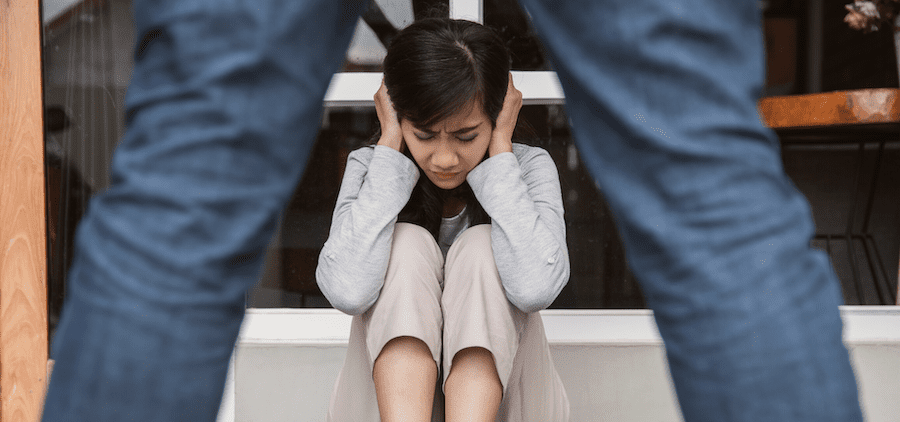Victims of the Jeffrey Epstein saga have seen some recompense, with Ghislaine Maxwell recently being found guilty of recruiting and trafficking young girls to be sexually abused.
It is difficult to summarise the complex web of trauma that the victims would have, and continue to, suffer, but one clear characteristic of the victims’ accounts is that they were subject to controlling and emotionally exploitative relationships.
Involving flashy Floridian mansions, secluded tropical islands and posh private jets, the Epstein story seems limited to the realms of celebrity gossip and compelling Netflix documentaries, too far removed from everyday life. It is important to however remember that, every day, people all over Australia are subjected to the trauma associated with controlling and abusive relationships.
On 18 December 2021, the NSW Government committed to outlawing coercive control in current and former intimate partner relationships. This was in response to recommendations that they adopted from findings of the Joint Select Committee on Coercive Control.
What is coercive control?
Coercive Control is a pattern of abuse that cumulatively has the effect of denying victims their autonomy. The abuse can include physical, sexual, psychological and financial abuse.
Common examples of controlling and coercive behaviour include:
- Dictating aspects of your everyday life, such as where you can go, where you can work or what you can wear
- Monitoring how you spend your time
- Tracking your movements using online software, settings in your mobile phone or spyware
- Isolating you from friends and loved ones
- Controlling your finances
- Preventing you from accessing support services, including medical or psychology services
- Threatening or intimidating you
- Repeatedly humiliating you
- Repeatedly degrading you and telling you, you’re worthless
Fortunately, thanks to tireless campaigning, there has been a change in attitudes towards coercive control. Reports undertaken by the NSW Coroner have revealed that controlling and coercive behaviours are more often noted in relationships that lead to intimate partner homicide. Furthermore, the report noted that in several cases, there was no evidence of any physical violence perpetrated against the victim before the act of intimate partner homicide.
Steps are being taken in every Australian jurisdiction, including NSW, to recognise coercive control as a criminal offence. Campaigners have also called for funding to meet a training gap for first responders and community services that regularly work with victims of coercive and controlling behaviour.
The Family Law Act 1975 defines family violence widely and controlling and coercive behaviour, squarely falls within the definition under Section 4AB of the Act. This is of particular relevance to anyone who has been a victim of coercive control with children. In parenting proceedings, the paramount consideration under the Act is to make Orders which are in the best interests of the child, particularly Orders which protect children from physical or psychological harm from being subjected to, or exposed to family violence.
What to do if you think you are a victim of coercive control
If you think you are being coercively controlled by someone, particularly your partner, there are a number of things you can do to move forward:
- Keep a diary recording details of events. Having been subjected to years of controlling behaviour, a victim may downplay their partner’s behaviours, considering their actions to be part of a ‘normal’ relationship dynamic, or have difficulty trusting their own instincts or with memory recall. Having a contemporaneous record of events will serve as valuable evidence.
- Reconnect with family and friends that you have been distanced from. Ask for help and let your loved ones know what you have experienced.
- Seek out professional help from your GP or a counsellor.
- Don’t be afraid to report the behaviour to Police. You may have grounds for an Apprehended Domestic Violence Order (ADVO) which the Police apply for these on your behalf.
If you have been a victim of coercive and controlling behaviour, you may find it difficult to trust your own instincts. You may feel powerless in your interactions with your ex-partner. You may feel particularly concerned about your children spending time with your ex-partner. It may be appropriate that the contact your ex-partner has with your children should be limited. Do not feel that you must agree to anything your ex-partner proposes regarding the division of assets or arrangements for your children. We always recommend that you obtain legal advice before entering any form of arrangement, formal or informal, with your ex-partner.
Our empathetic family lawyers are here to guide you through the separation process.
We recognise that for any victim of domestic violence, separation is a particularly difficult process whilst you work to regain control over your life. Contact Us today to get in touch with our experienced family law lawyers. We have years of experience helping people with their family law needs throughout the Newcastle, Lake Macquarie and Hunter region.
This blog was written by Senior Associate,
Liz McIntyre
Liz practises in the areas of Family Law, Wills & Estate Planning,
Deceased Estates, Wills disputes and Conveyancing








